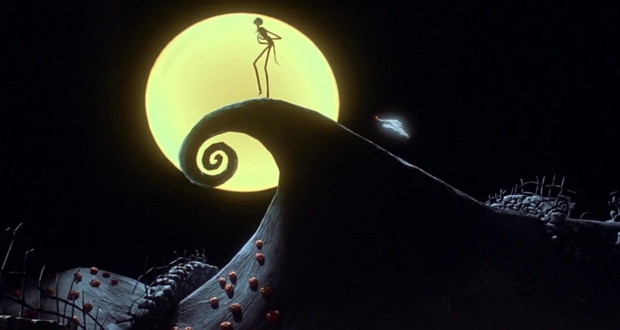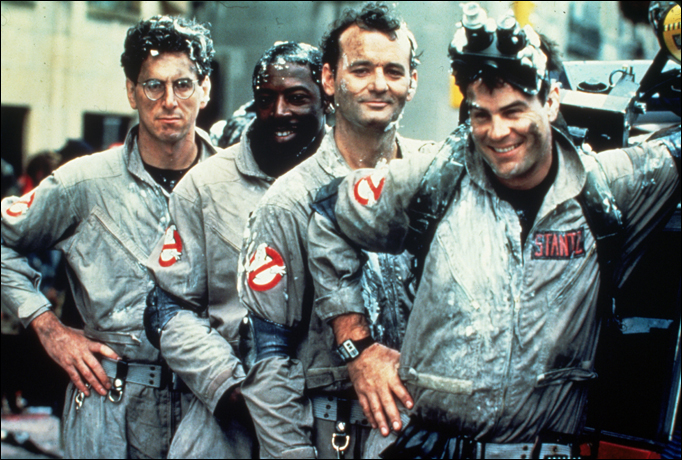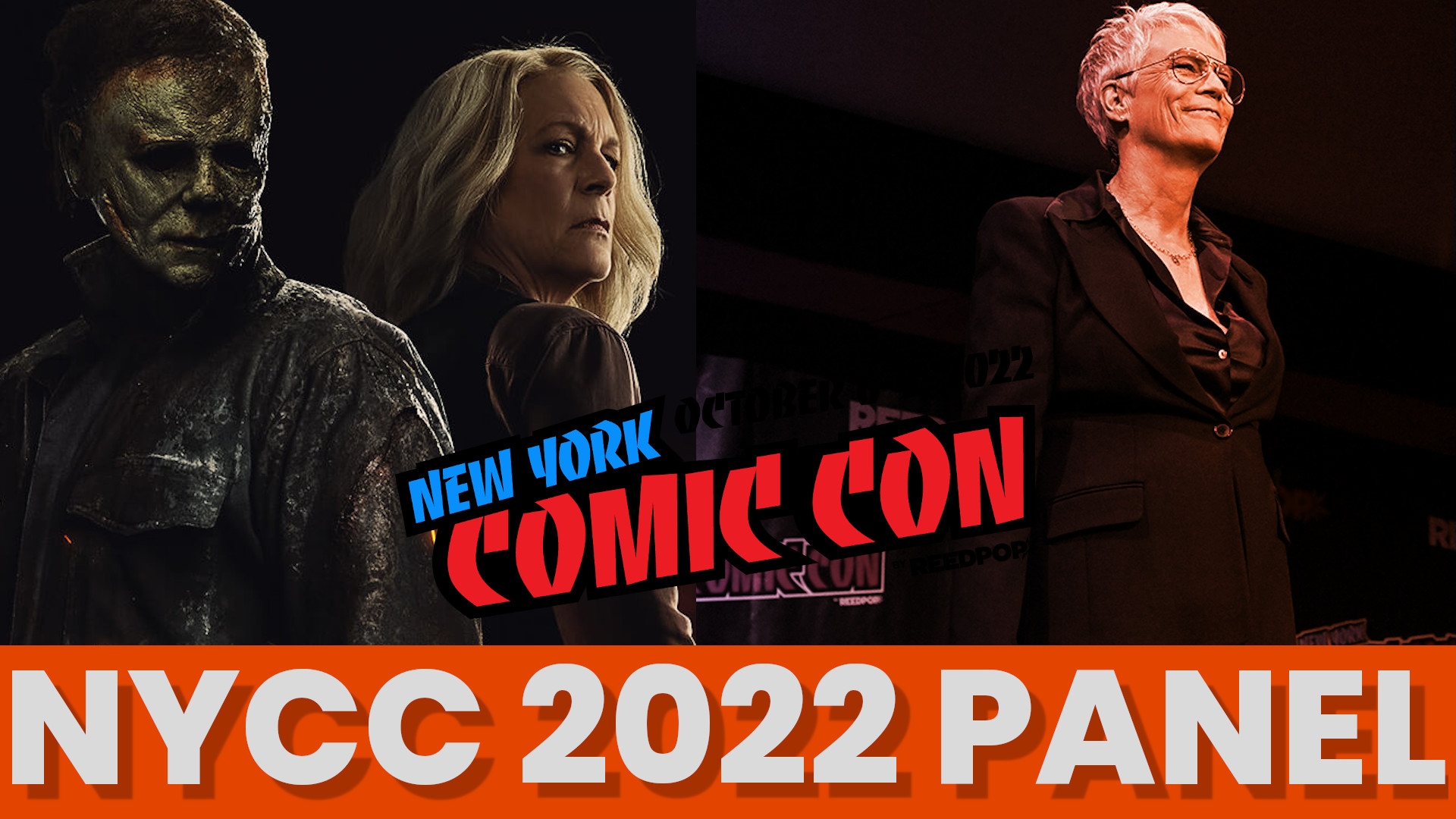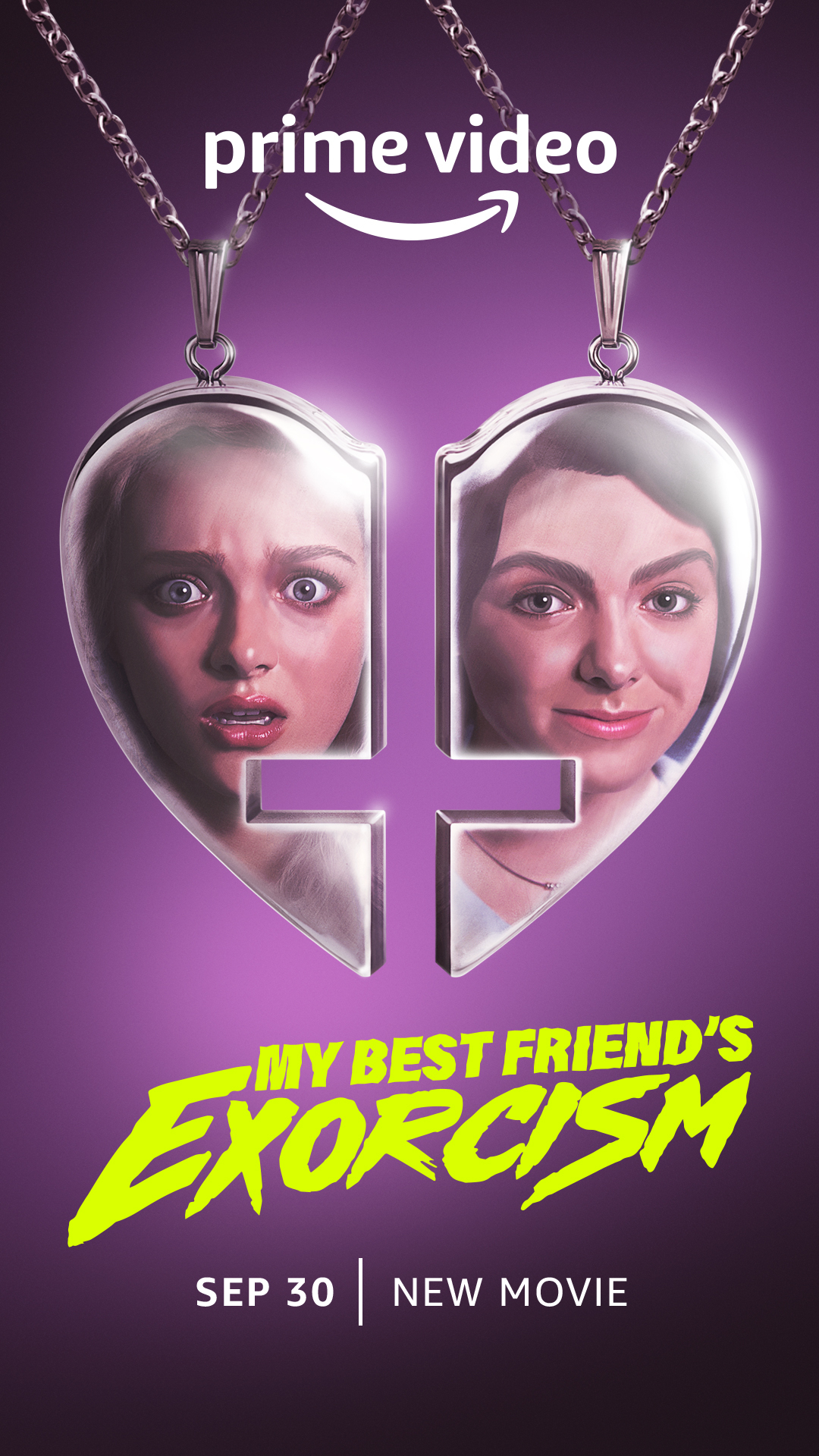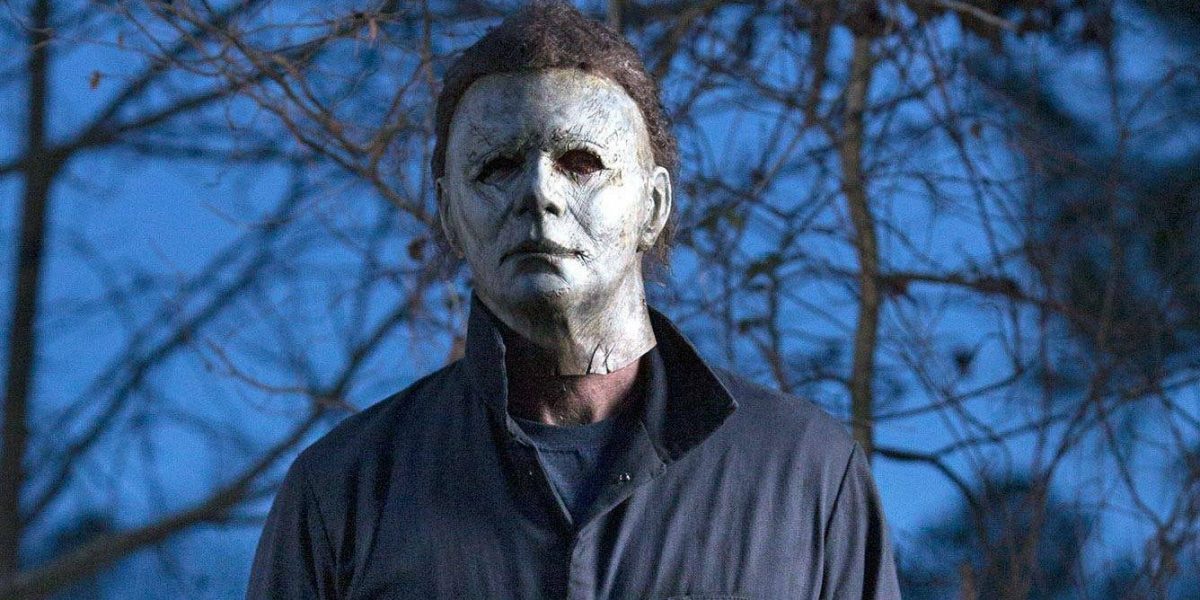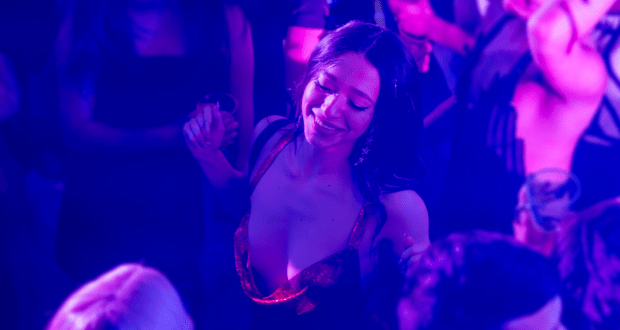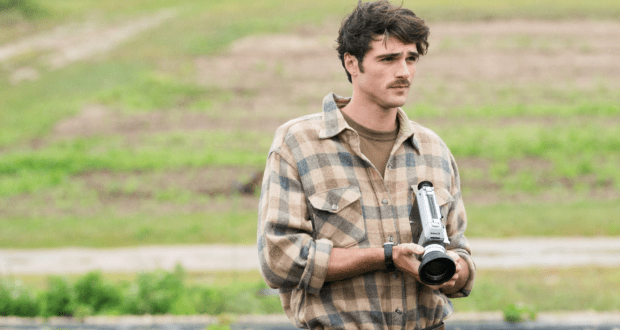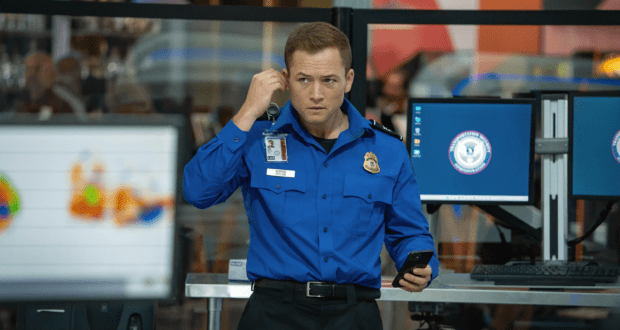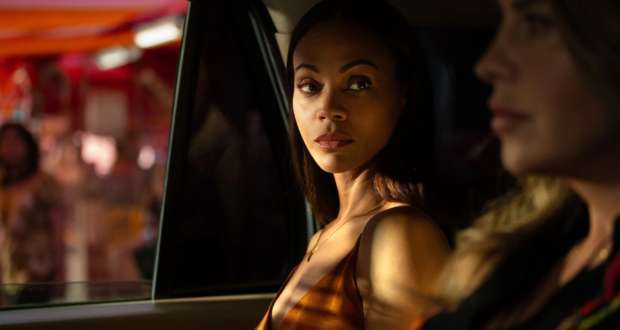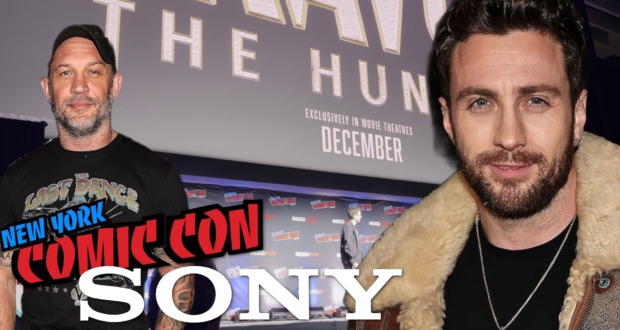The year has absolutely blown by so quickly so far. If you can believe it, Halloween is just a few weeks away at this point. Haven’t started to watch anything spooky yet? Don’t worry, because I have you covered! October simply isn’t complete for me until I binge-watch a ton of horror movies to get me in the spirit. Here are the best Halloween Movies to watch during the Halloween Season.
Although I watch dozens upon dozens of horror movies in October, these movies are the ones that have always stood out to me and are the ones that I constantly come back to each spooky season to get me in the mood.
Trick ‘r Treat (2007)
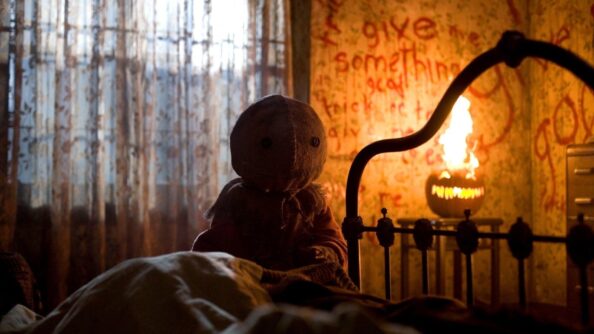
As the leaves turn crisp and the air grows chilly, Halloween enthusiasts around the world eagerly anticipate the arrival of spooky season. Among the myriad of horror films that grace our screens, there is one gem that stands out, ready to send shivers down your spine and remind you why you fell in love with Halloween in the first place. Trick ‘r Treat, directed by Michael Dougherty, is not just a run-of-the-mill horror movie; it’s a Halloween experience that captures the essence of the season like no other.
At its core, Trick ‘r Treat is a masterclass in storytelling, seamlessly weaving together four interconnected tales that unfold in a small, seemingly ordinary town on Halloween night. What sets this film apart is its ability to blend horror, humor, and a touch of nostalgia into a captivating cinematic tapestry. The movie pays homage to the traditions and folklore of Halloween, incorporating elements like jack-o’-lanterns, werewolves, ghosts, and urban legends. Each story unfolds like a macabre bedtime story, drawing you in with its atmospheric charm and leaving you on the edge of your seat.
One of the film’s strongest assets is its impeccable pacing. The stories unfold in a non-linear fashion, creating a sense of anticipation and surprise that keeps the audience engaged from start to finish. Just when you think you have it all figured out, Trick ‘r Treat takes an unexpected turn, keeping you guessing and ensuring that the thrill factor never wanes.
Trick ‘r Treat is a triumph of horror cinema, a film that captures the magic of Halloween and weaves it into a tapestry of terror and delight. Its compelling storytelling, memorable characters, nostalgic charm, stunning visuals, and haunting soundtrack combine to create a masterpiece that stands the test of time. Watching Trick ‘r Treat during spooky season is not just a choice; it’s a necessity, a tradition that every Halloween enthusiast should embrace. So, dim the lights, grab some popcorn, and let yourself be immersed in the captivating world of Trick ‘r Treat. It’s a journey into the heart of Halloween, and once you experience it, you’ll never look at the holiday the same way again.
The Shining (1980)
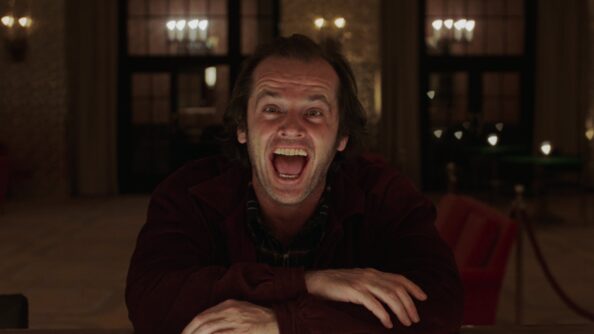
Based on Stephen King‘s novel of the same name, The Shining stands as a towering achievement in horror cinema, a chilling exploration of madness, isolation, and the supernatural. From its impeccable direction to its unforgettable performances and haunting atmosphere, The Shining remains a crowning achievement, a film that continues to terrify and mesmerize audiences with its unique blend of psychological horror and supernatural dread.
At the heart of the film is Jack Nicholson‘s tour-de-force performance as Jack Torrance, a struggling writer and family man who takes a job as the winter caretaker of the isolated Overlook Hotel. Nicholson’s portrayal is nothing short of legendary; his descent into madness is both gradual and electrifying. With each passing moment, Nicholson imbues Jack with a palpable sense of menace and unpredictability, creating an iconic character whose unraveling becomes a nightmare from which there is no escape.
Equally mesmerizing is Shelley Duvall as Wendy Torrance, Jack’s wife. Duvall delivers a performance that is both vulnerable and resilient, capturing the essence of a woman trapped in a terrifying situation, desperately trying to protect her son and herself from the horrors unfolding around them. The chemistry between Nicholson and Duvall is raw and intense, adding depth to the film’s exploration of deteriorating family dynamics under the strain of supernatural forces.
The film’s cinematography, helmed by the late, great John Alcott, is nothing short of breathtaking. The Overlook Hotel is rendered in all its ominous glory, with wide-angle shots emphasizing its grandeur while also highlighting the isolation of its inhabitants. The use of Steadicam technology, particularly in the scenes with Danny riding his tricycle, adds an eerie fluidity to the film, enhancing the feeling of otherworldliness that permeates every scene.
For anyone seeking a truly unforgettable cinematic experience, The Shining is an absolute must-see, a dark and mesmerizing journey into the heart of terror that will leave you breathless and haunted long after the final frame.
Hereditary (2018)
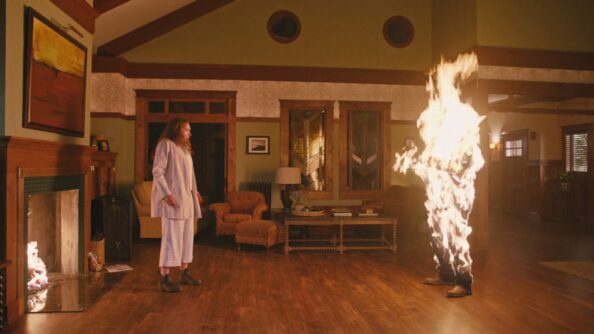
Ari Aster‘s directorial debut, Hereditary, is a descent into the darkest corners of human experience, a chilling exploration of grief, family dynamics, and the supernatural. From its haunting visuals to its gut-wrenching performances, Hereditary stands as a towering achievement in the realm of horror cinema.
At the heart of this cinematic marvel lies an outstanding cast led by Toni Collette, whose portrayal of Annie Graham, a mother dealing with unspeakable grief, is nothing short of extraordinary. Collette’s ability to convey a wide range of emotions, from profound sadness to sheer terror, is unparalleled. She draws the audience into the depths of her character’s despair, making the supernatural elements of the film all the more terrifying.
The film’s cinematography, helmed by Pawel Pogorzelski, is a masterclass in visual storytelling. Every frame is meticulously composed, creating an atmosphere of palpable dread that lingers long after the credits roll. The use of symbolism and foreshadowing in the visual elements is both subtle and profound, enhancing the overall sense of unease. The camera work, combined with Colin Stetson‘s haunting score, creates an immersive experience that seeps into your bones.
Hereditary is an absolute must-see. Brace yourself for a cinematic journey that will haunt your dreams and challenge your understanding of fear. I dare you to watch this movie with the lights completely off in the middle of the night. I bet you won’t be able to make it all the way through without turning on at least one light in your house.
Scream (1996)
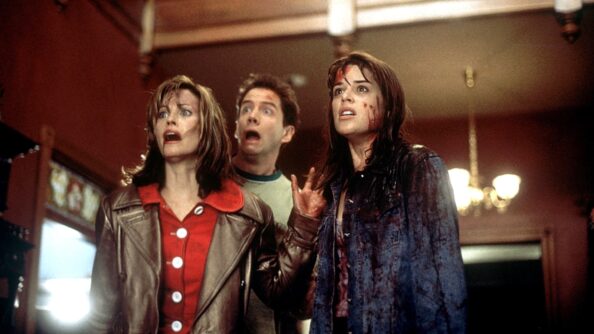
Few horror films have managed to blend genuine terror and razor-sharp satire with the finesse of Wes Craven‘s 1996 classic, Scream. As a fan of the genre, I can confidently say that this film is nothing short of a masterpiece, earning its rightful place in the pantheon of horror greats. With its ingenious writing, expert direction, and a cast that delivers performances worthy of acclaim, Scream not only reinvigorated the slasher genre but also set a new standard for self-awareness in horror movies.
Scream opens with a pulse-pounding sequence that sets the stage for the terrifying events to come. From the very beginning, the film subverts expectations, keeping the audience on the edge of their seats. What makes Scream truly stand out is its self-awareness. It takes the clichés and conventions of slasher films and turns them on their head, deconstructing the genre while simultaneously paying homage to it.
The story revolves around Sidney Prescott, portrayed brilliantly by Neve Campbell, a smart and resourceful high school student who becomes the target of a masked killer known as Ghostface. As the body count rises, Sidney, along with her friends and the town’s inhabitants, finds herself trapped in a web of mystery and deception. The film’s plot is a rollercoaster of suspense, keeping the audience guessing until the very end.
Scream is a timeless classic that transcends the confines of the horror genre. Its ingenious writing, expert direction, and outstanding performances make it a standout film that continues to captivate audiences decades after its release. Wes Craven’s masterpiece not only revitalized the slasher genre but also left an indelible mark on cinema as a whole. For fans of horror, comedy, and intelligent storytelling, Scream is a must-see film that delivers thrills, chills, and a hefty dose of self-aware humor.
The Exorcist (1973)
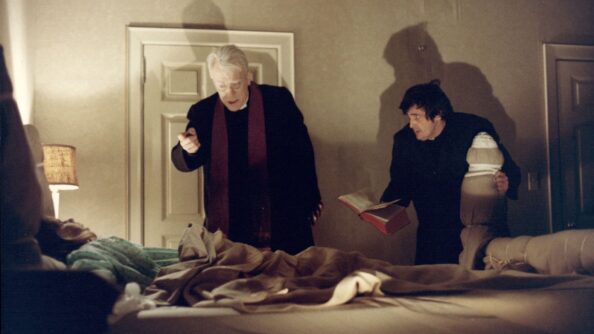
The Exorcist is a visceral, psychological experience that delves into the darkest recesses of human fear and spirituality. From its chilling atmosphere to its exceptional performances, this movie stands as a testament to the power of storytelling and filmmaking.
The Exorcist opens innocently enough, in the quiet Georgetown neighborhood of Washington D.C. Yet, beneath this serene surface, a malevolent force is brewing. What begins as subtle disturbances quickly escalates into a full-blown nightmare when young Regan MacNeil, played with extraordinary conviction by Linda Blair, becomes possessed by a demonic entity. The film’s brilliance lies not only in its terrifying supernatural elements but also in its exploration of faith, doubt, and the battle between good and evil.
One of the film’s standout features is its masterful direction by William Friedkin. His meticulous attention to detail is evident in every frame, creating an atmosphere that is thick with dread. The iconic staircase scene, where Father Karras (Jason Miller) faces the daunting prospect of confronting the possessed Regan, is a prime example of Friedkin’s ability to build tension to unbearable levels. The slow, deliberate pacing of the film allows the audience to feel the weight of every moment, amplifying the impact of the supernatural occurrences.
The performances in The Exorcist are nothing short of extraordinary. Linda Blair‘s portrayal of Regan is nothing less than iconic. Her ability to switch between the innocent, playful demeanor of a child and the grotesque contortions of a possessed being is both terrifying and heartbreaking. Equally compelling is Ellen Burstyn as Regan’s mother, Chris MacNeil. Burstyn’s raw and emotional performance adds a layer of authenticity to the film, grounding the supernatural events in a deeply human context.
What truly elevates The Exorcist to a level of greatness is its exploration of profound themes. At its core, the film grapples with the clash between faith and skepticism. Father Merrin, played by Max von Sydow, embodies unwavering faith in the face of pure evil. In contrast, Father Karras represents the doubt and crisis of faith that many individuals experience when confronted with the inexplicable. This dichotomy between belief and disbelief forms the emotional backbone of the story, making The Exorcist a deeply thought-provoking and intellectually stimulating film.
Halloween (1978)
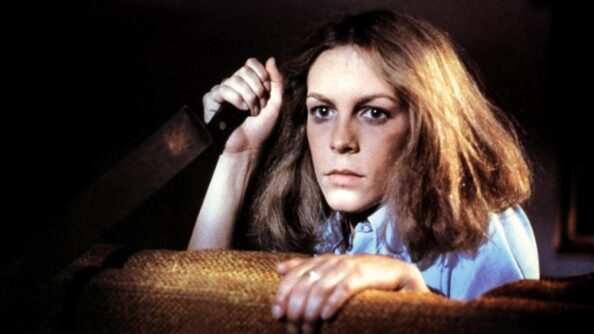
Of course, this list would not be complete without John Carpenter’s iconic 1978 horror masterpiece Halloween, which essentially redefined the horror genre as we know it. With its spine-chilling atmosphere, masterful direction, and iconic score, Halloween stands as a timeless masterpiece that continues to haunt and thrill audiences even after four decades. From its eerie opening sequence to its heart-pounding finale, Carpenter’s film expertly crafts an unparalleled sense of dread, making it an absolute must-watch for horror enthusiasts and cinephiles alike.
At the heart of Halloween‘s brilliance lies its groundbreaking narrative, which deftly subverts the tropes of its genre. Carpenter, who co-wrote the script with Debra Hill, introduces audiences to Laurie Strode (Jamie Lee Curtis), an unsuspecting high school student whose life is forever changed when she becomes the target of Michael Myers (Nick Castle), an enigmatic and malevolent figure. What sets Halloween apart from its contemporaries is its focus on suspense over gore. Unlike many slasher films of its time, Halloween relies on tension and psychological fear, allowing the audience’s imagination to conjure horrors far more terrifying than anything explicitly shown on screen.
Carpenter’s direction is nothing short of brilliant. His use of the Steadicam, a then-revolutionary filming technique, immerses viewers in the small town of Haddonfield, Illinois, heightening the tension as Michael Myers stalks his unsuspecting victims. The film’s cinematography is masterful, capturing the eerie quietude of suburban streets and the encroaching darkness that shrouds the town as the night unfolds. Carpenter’s keen eye for detail and his ability to manipulate light and shadows create a palpable sense of dread, establishing Halloween as a visual feast for horror aficionados.
Central to the film’s success is the enigmatic and malevolent presence of Michael Myers. Nick Castle’s portrayal of the masked killer is hauntingly effective; his silent, deliberate movements and emotionless mask create an aura of pure evil. The decision to keep Myers’ motives ambiguous adds to the character’s mystique, making him a terrifying embodiment of the unknown, an unstoppable force that lurks in the shadows. Castle’s performance, combined with Carpenter’s direction, transforms Myers into one of cinema’s most enduring and iconic villains.
Jamie Lee Curtis delivers a standout performance as Laurie Strode, infusing her character with a perfect blend of vulnerability and strength. Curtis’s portrayal of Laurie as a resilient young woman, forced to confront unimaginable horrors, elevates Halloween beyond the standard scream queen fare. Her character’s evolution from innocence to survivalist showcases Curtis’s acting prowess and adds depth to the film’s narrative.
No discussion of Halloween would be complete without acknowledging the film’s haunting score, composed by John Carpenter himself. The iconic, minimalist piano melody, coupled with eerie synthesizer tones, has become synonymous with fear. Carpenter’s score is an integral part of the film’s fabric, intensifying the suspense and sending shivers down the audience’s spine. Its effectiveness cannot be overstated, as it enhances every scene and lingers in the viewer’s mind long after the credits roll.
In addition to its technical brilliance, Halloween explores themes of destiny, fate, and the darkness that resides within humanity. Through the character of Michael Myers, the film delves into the primal fear of the unknown, the inexplicable, and the randomness of evil, themes that continue to resonate with audiences to this day. Halloween‘s ability to tap into these universal fears elevates it from a mere slasher film to a thought-provoking exploration of the human psyche.

